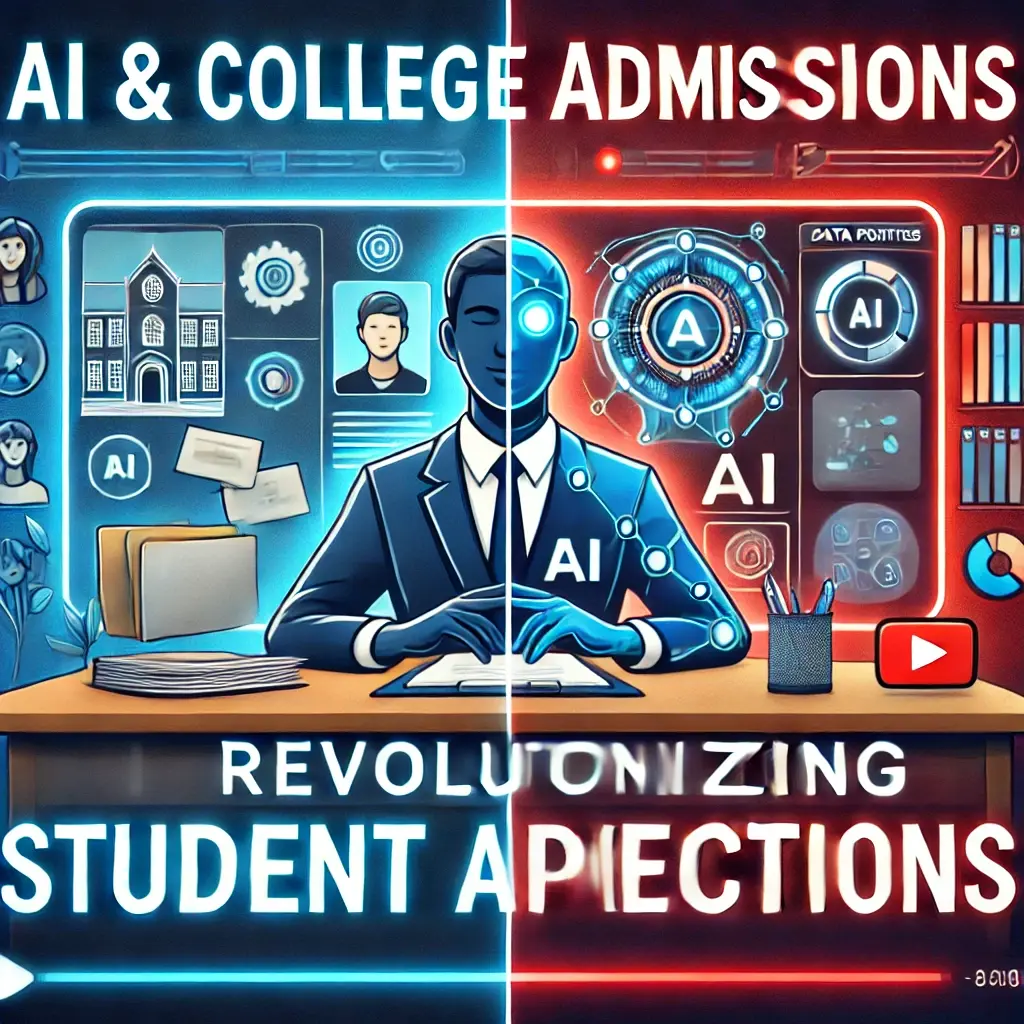With over 20 million college applications submitted annually, traditional admissions processes are being shaken by the most unlikely of forces: artificial intelligence. As institutions struggle with increasing volumes and the need for more holistic evaluation methods, AI has come forth as a game-changing solution in higher education admissions.
Integration of AI-powered systems: how colleges are moving away from test scores and GPAs as assessors of applicants’ potential. This technological shift promises not just to make the admissions process more efficient but also potentially more fair. Important questions over the future of college access and the role of human judgment in educational gatekeeping.


The Evolution of AI in College Admissions: Transforming Higher Education Access
The Current Landscape of AI in College Admissions
Artificial intelligence has emerged as a powerful tool for the evaluation of personal qualities and simplification of application procedures in today’s competitive college admissions landscape. Increasingly, admissions officers rely on AI-powered systems to evaluate applicants beyond their straightforward academic metrics. These systems analyze various aspects of applications, including personal essays, to evaluate quality such as prosocial purpose, leadership potential, and intrinsic motivation.
However, as admissions departments search for more efficient ways to conduct holistic reviews, the incorporation of AI into the process has gained special momentum. With about 70 percent of admissions officers emphasizing personal qualities in the evaluation process, AI can produce a systematic approach toward assessing elements commonly regarded as subjective. The technology can rapidly scan thousands of applications with consistency in the evaluation criteria.
Potential Future Trends in AI for College Admissions
Artificial intelligence systems are now sophisticated enough to forecast student success and fit into the institutional environments. Recent algorithms can perceive and assess how to judge multiple dimensions in an applicant’s profile, such as one’s willingness to lead, commitment to learn, or pursuit of goals. These assessments have exciting potential to supplement traditional metrics.
The future of AI in admissions points towards a more personalized process of evaluation. More sophisticated systems can determine patterns in successful applications while taking into account different demographic factors. This capability allows institutions to have high standards and ensure that applicants from different backgrounds have fair consideration.
Ethical Considerations in the Application of AI
Considerations in implementing AI for admission into an academic institution raise important questions of transparency and fairness. Although AI increases the speed with which a potential student is evaluated, there are also concerns of bias and a need for human oversight. Universities must look to balance some gains made through AI and still protect the integrity of the admissions process.
Transparency in an AI-driven assessment is a must. Institutions need to express the basis for their assessments explicitly and enable the creation of AI systems that complement human judgment rather than replace it. This would assist in making admissions processes transparent while harnessing technological advantages.
AI’s Impact on Diversity and Inclusion in Admissions
AI technology holds great promise to foster diversity and inclusion in higher education. By using a structured rubric and having more independent evaluations, AI systems are able to minimize unconscious bias that may often be attached to traditional admissions. These tools are able to highlight promising candidates who might have otherwise been overlooked in conventional review methods.
Automated evaluations using AI are particularly helpful in encouraging more systematic approaches by applicants from underrepresented groups. This is because, focusing on personal qualities, these systems avoid providing summary judgments and thereby develop more equitable assessments of individual potential and achievement.
Implications for Students, Colleges, and Society
The integration of AI in admission will have far-reaching implications for all the stakeholders in higher education. For students, assessments driven by AI will be more structured and arguably even more predictable. However, this comes with new expectations and learning how their personal qualities will be assessed through digital means.
Colleleges will have the opportunity to increase effectiveness without compromising the quality of their selection procedures with these AI tools. For instance, these systems may deal with large volumes of applications while ensuring consistency in the evaluation of personal qualities across diversified applicant pools. End.
The success of AI in college admissions down the road will depend on continually refining these systems and being attentive to their impact on educational access and equity. As institutions further develop and employ these technologies, continued transparency and fairness are paramount for ensuring that the forward momentum of technological development does not adversely harm the fundamental missions of higher education.
The Road Ahead: Balancing Innovation with Human Insight
An intersection of technology and human judgment has to come with the test of shaping college admissions in the face of artificial intelligence. While AI offers unprecedented capabilities in processing applications and identifying promising candidates, it is how well institutions balance algorithmic efficiency with human wisdom and ethical considerations that will determine the ultimate success of these systems.
The future of college admissions is not between human expertise and artificial intelligence but in the optimum synthesis of both. As these systems develop further, their ability to create more accessible, equitable, and efficient pathways to higher education will provide educational institutions all over the world with a promising opportunity but also a compelling challenge.


